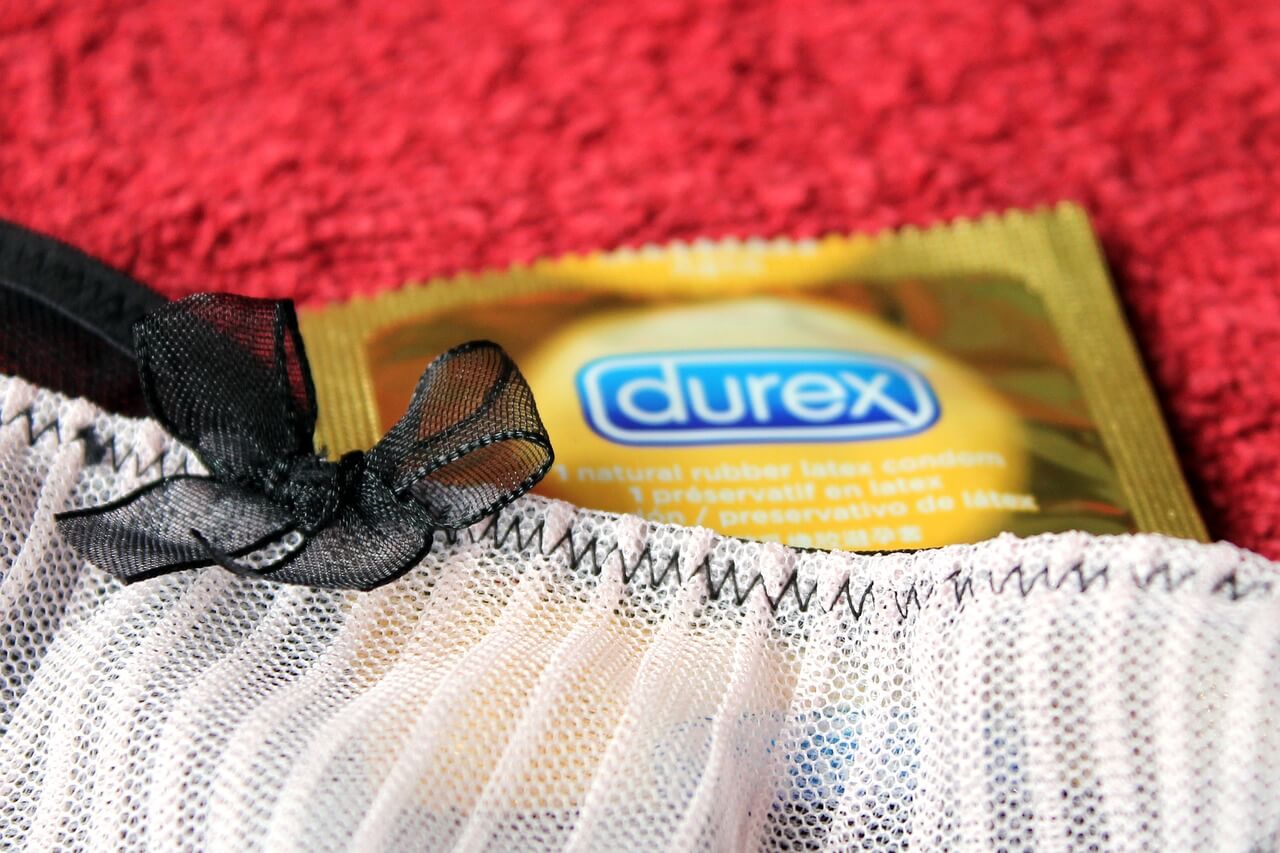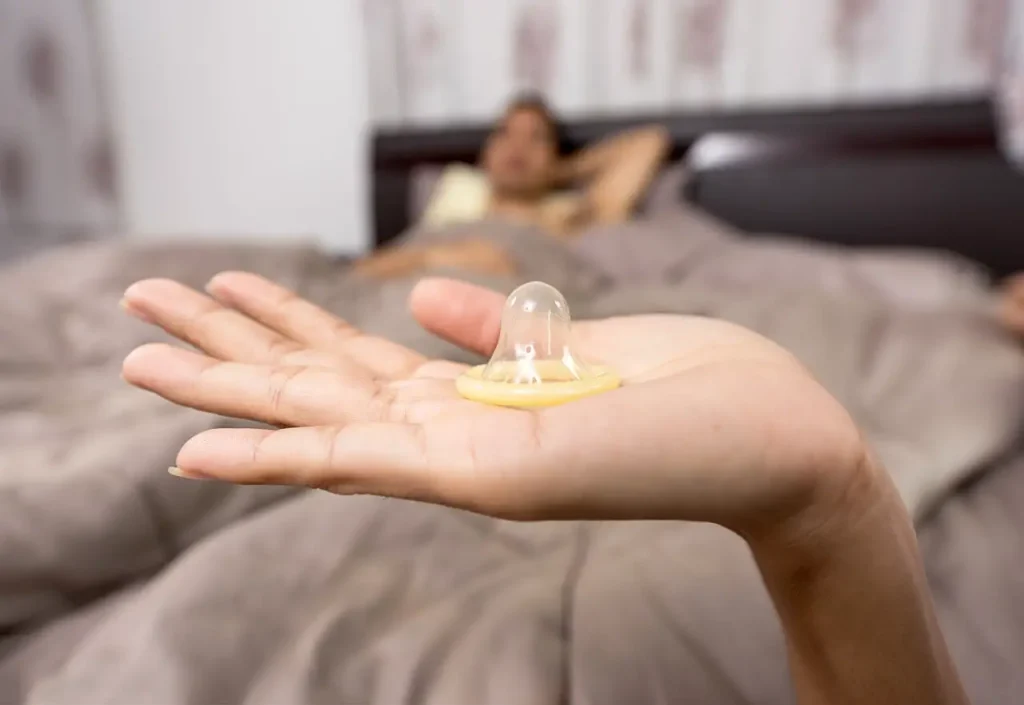I was seven years old, first grade of my elementary school education and I remember it was an early evening. The year was 2004. I did my homework and I spent my time playing before going to sleep ahead of another school day. My mom returned home from a PTA meeting. All of sudden, my dad screamed from the living room to come there. I was getting a lot of A’s at the time, I was surprised at this sudden anger. It wasn’t my first time getting in trouble but I couldn’t even imagine what my newest charges would involve. Keep in mind, this is a reenactment from memory.
“I don’t even know where you found out about it, but what were you thinking telling other kids about that? The teacher was very upset, your father and I are very upset. I don’t want you ever to hear you mention that again or tell anyone about it.”
„About what?“ I asked puzzled as I didn’t really talk too much with other kids and I was mostly drawing in my notebook.
„You know very well what I mean,“ replied mom.
„No I really don’t, I swear!“
„I’m talking about that word.“
„What word?“
„You know“
„I don’t!“
„Sex, Ivor! Don’t talk to other kids about sex“
„What’s sex?“
My parents paused and looked at each other confused.
„Don’t act like you don’t know what it is,” mom said persistently.
„But I swear I really don’t“, I whined, since I legitimately had no idea what they were talking about.
Years later looking back at that „trial and conviction“, I can only think of one plausible theory of how it came to that situation. I was an only child, but other kids in my school had older siblings, some of them attending sixth or seventh grade at the time which would mean they were 12 or 13 years old. Obviously, that is the time when kids start talking or fantasizing about sex. And obviously, as they were talking about sex with their friends, one of my classmates must’ve heard them. Then, my classmates must’ve said it while playing on the playground or in the hallway during recess where our teacher heard them. I can imagine she was pissed and immediately wanted to know who was responsible and to punish the delinquent. Given my hard time socializing with others and the fact I mostly played on my own or was busy drawing stuff, as well as the fact I wasn’t there, it was easy to shift the blame on me. Our teacher clearly wasn’t „the sharpest tool in the shed“, and was unable to figure out that I had obviously been used as a scapegoat. My dad didn’t have „the talk“ with me but since I often picked up things from TV or radio my parents found it likely that I could’ve heard about it and then spread the word of this revelation to my classmates.
However, in the end, my parents believed me. They didn’t quite apologise but I was off the hook.
„But what is sex?“ I asked.
My parents looked at each other.
„You’ll learn when you are older, but in the meantime, don’t talk about it or think about it“, said mom.
 Pixabay
Pixabay
My first detective/ investigative journalist practice
The next day in school, the teacher briefly but angrily reflected on the scandal and told us not to use that word anymore.
Less talking and more listening to other pupils, I couldn’t figure out who used the word first, but it became obvious that nobody really knew what that word meant. We only knew we couldn’t use it but it made no sense. They warned us earlier about avoiding needles and pills if we were to ever stumble on them on the playground and we at least knew what pills and needles were, we understood that we could get sick or even die from them. We knew we should avoid it, but why did nobody want to explain what this ‘sex’ thing was, and why is it so bad? It only motivated us to think about it and pursue our little investigations like we were Sherlock Holmes or Woodward and Berstein. You could constantly hear kids whispering „what is sex? I want to know, it’s not fair that nobody wants to say“. I guess they didn’t want to explain sex to avoid controversy and discomfort, but they didn’t think about kids being kids and not knowing a word makes them say it even in the most inappropriate times. I guess that would be one more argument that knowledge is always better than ignorance.
I don’t know how (but possibly thanks to the older siblings of other pupils), kids started to learn a few things about sex, though they were never proven and could be false: it’s an adult thing, it includes taking off clothes, and the most controversial part? It’s how babies are made. Again, those three things were all the info we were able to find out but we didn’t know for sure and the whole baby thing was seriously considered to be far-fetched or even down-right insane.
Finally, when I was eight, I was watching a random American movie with my parents. There was a scene of a blonde and guy driving in a truck and they were talking about having sex. I looked at my parents. They looked at each other rolling their eyes and with an expression of concern.
„OK, we will tell you but you have to keep it to yourself and not speak about it, “ said mom.
And so dad explained the whole thing. I learned the phrase „jebo ti pas mater“ (a dog fucks your mother) before I even went to school but I never wondered what jebo means and I was quite surprised that word was in fact a synonym for sex all along. At that time, I was already inclined to believe that sex is the way babies are made but I wasn’t too sure of the concept. To be honest, I quite liked the concept when it was elaborated. It made perfect sense and it kinda sounded fun.
„So when I can start doing it?“ I asked.
„When you get married, “ said mom with a slightly raised voice.
„And when did you and dad get married?“
„When we were 26“.
And so I couldn’t wait to turn 26 to give it a try. You can conclude whether I’m actually waiting for two more years or not yourself.
A few years later, I heard about condoms while watching „Mean Girls“ and about gay people when someone explained the meaning of the offensive word ‘peder’ (faggot), which we used to insult each other without really knowing what it meant.
Shift from school to doctors
As for formal education, the first time we actually talked about sex was in 5th grade. It wasn’t about sex but mating among animals with an image of a rooster humping a hen in a biology textbook. The first mention of procreation was in 6th grade during mandatory physical exams. The doctors examining us gave us a short but actually useful presentation on sex, contraception, STDs, and genital hygiene. Religious studies briefly mentioned sex as something that is a sin to do before marriage and finally, more detailed lessons on sexuality (for straight people only), contraception, STDs, as well as the characteristics of genitalia, arrived in biology in eighth grade. But by that time, we all knew everything apart from the details on physiology. 
Pixabay
Blood and gore are alright but still no Sex-Ed in Croatia?
Looking back, I feel as if everyone made mistake after mistake. Obviously, you shouldn’t mention sex to seven-year-olds, but if they have already heard the word and don’t know what it means, shouldn’t there be a less aggressive approach where you don’t act as if the kids murdered someone for saying a word they know nothing about? If it has arrived at that anyway, couldn’t the teacher call a PTA and tell the parents that this happened and ask them to explain what sex is? Or couldn’t the teacher explain it briefly?
You might be thinking it’s preposterous for a teacher to explain sex to her pupils at that age. But then again, neither the teacher nor the school had any problems talking about the war in the ’90s which wasn’t part of the curriculum. Is that appropriate more than sex? Not quite.
It was also not remotely appropriate to talk to seven-year-olds about how Serbs came to Vukovar and destroyed the city with tanks. As Paul Bradbury recalls, that has a bad impact on kids. Nor is it OK for a religious studies teacher from Rijeka to use questionable terms to describe persons whose depth and background kids don’t understand and even make them choose who they would and wouldn’t share a train with (a gay man, young artist infected with AIDS, a Serbian soldier from Bosnia or a prostitute from Berlin, to name a few).

Pixabay
Sex and violence are two things you need to be careful about when presenting them kids, but if the educational system already shows a willingness to present „mature things“ its hypocritical to say the least to put such an emphasis on violence while silencing any mention of the most basic human activity associated with love and positive emotions between consenting people. Given the fact that „my days“ of Sex-Ed started in 2004, I graduated from elementary school in 2011 and graduated high school in 2015, I do hope something has changed in the educational system and among a new generation of parents so their kids don’t have to play Sherlock Holmes trying to figure out the meaning of new words they encounter.
Croatia still doesn’t have Sex-Ed, let alone a form of it that would be appropriate for pupils based on scientific reasoning and findings and a legitimate psychological approach to be understandable to the new generations. As Nataša Bijelić found in her work in 2008, the issue of Sex-Ed is related to the clash of religious and secular discourses. The conservative association Grozd suggested Sex-Ed curriculum which, as Bijelić found presented one-sided discourse in favor of religious morals over the secular values of the Republic of Croatia. Grozd’s program, among others, said that „contraceptives change the essence of sexual intercourse because they don’t respect the complete nature of the relation between a man and a woman“ and regarding LGBTQ, it was stated that ‘homosexual intercourse stands against the very nature of sexual intercourse“. Bijelić concludes in her work that such curriculum shows that „the Catholic church in an educational system can be repressive in relation to the sexual and reproductive health and rights of youth.“
Meanwhile, Croats do call for change. Earlier this year, 13,000 people signed a petition demanding the introduction of Sex-Ed in Croatian schools after more and more public discussion and activism. People hope this curriculum will teach kids about safe, responsible sex based on science and with respect to sexual and reproductive health rights and sexual minorities. It remains to be seen whether or not some truly serious efforts will actually be put into place to realize this demand.
How do you think sex-ed in Croatia should be taught?
To read more about lifestyle in Croatia, follow TCN’s dedicated page.








